 Browns Archive
Browns Archive  Lingering Items--Random Cruelty Edition
Lingering Items--Random Cruelty Edition
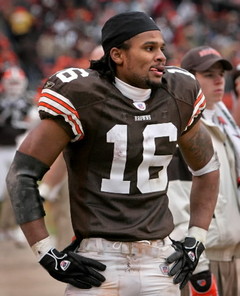 To really appreciate the vagaries and cruelties of professional football, consider the 24-hour period that started midday on Thursday and carried over to midday on Friday. In that short span, the Cleveland Browns waived goodbye to Brodney Pool, told Jerome Harrison that records notwithstanding he’s worth only a 2nd round pick and re-worked the contract and significantly increased the pay of special teams ace Josh Cribbs.
To really appreciate the vagaries and cruelties of professional football, consider the 24-hour period that started midday on Thursday and carried over to midday on Friday. In that short span, the Cleveland Browns waived goodbye to Brodney Pool, told Jerome Harrison that records notwithstanding he’s worth only a 2nd round pick and re-worked the contract and significantly increased the pay of special teams ace Josh Cribbs.
In one sense or another, all of these moves and all of the others the Browns made, including the trading of Corey Williams to Detroit, are related and have one common denominator, money.
Cribbs and the Browns on Friday announced a new $20 million/3-year agreement that includes $7.5 million guaranteed. If he hits all of the incentives in it, he’ll be the highest paid special teams player in the game.
It brings an end to a soap opera that was starting to rival Mary Worth for its near daily dose of drama. Since early last season and continuing, basically, through this week the Browns and Cribbs have either been really close on a new deal or miles apart, depending on who’s talking.
Cribbs’ agent, J.R. Rickert, proved to be mostly a hack in handling these negotiations, combining illogical threats with bad timing while his client, as earnest as a player can get, wore his heart on his sleeve. In the end, the Browns lived up to the promises of both former general manager Phil Savage and owner Randy Lerner by acknowledging that in context Cribbs’ contract was a tad undervalued. Good for Cribbs.
Of course the fact that it was undervalued was the function of shrewd negotiations by Savage but this was an issue that needed to be addressed. Cribbs, along with Joe Thomas, represent the only two credible players on this team. Fans, abused by misanthropes like Braylon Edwards, at least could feel real pride toward these two.
The problem, though, with Cribbs is that determining his value has always been a problem. He’s easily one of the best special teams players in the league. A gifted kick returner, he’s also a key cog on covering kicks as well.
If that was the extent of his resume, then figuring his contract isn’t all that difficult and it’s probably close to what he already was being paid. But Cribbs’ instincts as a runner make him an intriguing play on offense. The problem, though, is that while he’s done well at times in spot duty, he’s not a particularly gifted receiver at this point and his presence all but signals the next play. It’s this aspect of his game though that makes figuring out his overall value so difficult.
Now Cribbs has his money and he’s happy. Brodney Pool, not so much.
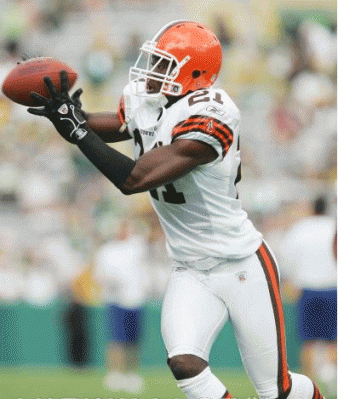 You can’t really fault the Browns for not tendering a contract to Pool. He’s had four concussions already, which makes it all the more likely that if he does get back on the field again he’ll suffer another. The chance that he’ll ever be a major contributor to any team is extremely unlikely.
You can’t really fault the Browns for not tendering a contract to Pool. He’s had four concussions already, which makes it all the more likely that if he does get back on the field again he’ll suffer another. The chance that he’ll ever be a major contributor to any team is extremely unlikely.
But Pool is absolutely one of the good guys of pro football. All he’s done is play as hard as he could for as long as he could. He’s a talented defensive back who toiled for a team and during a period in which his skills probably were never fully appreciated.
Any team that signs him, including the Browns, knows that doing so will likely result in “dead’ money when Pool inevitably ends up on injured reserve once again. It’s an outcome that Pool hardly deserves but is one that is replayed on virtually every team in the league and every year about this same time.
It would be nice to see Pool catch on somewhere, but I’m also conflicted. My greater hope is that someone, and that won’t be his agent, talks some sense into him and tells him it’s time to pursue another line of work. Four concussions is serious business. Whatever short term riches football brings at this point more than likely will come at the expense of his long-term health. It just isn’t worth it.
Meanwhile, Harrison once again finds himself in the position of having to prove himself all over again. Harrison reminds me of Doug Jones, the former relief pitcher for the Indians. Jones toiled in the Indians’ minor league system for years, compiling impressive stats, but had trouble getting a sniff at the major league level because his out pitch was a change-up and the speed of his fastball rivaled the speed at which the IRS processes refund checks.
Jones just never did fit the major league model except all he ever did was get people out. When he was finally brought up to the major leagues, almost by default, all he ever did here was get people out, too. Yet each and every year the Indians looked for reasons not to use him and all he ever did when he had a chance was perform.
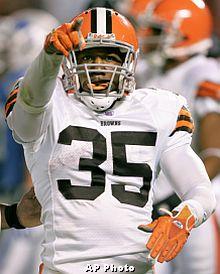 Harrison is in that same category. The Browns, even under new management, continue to look for reasons not to make him their feature back. His lack of size (he’s only 5’ 9” and 195 pounds) makes coaches and general managers question his durability. Yet whenever he’s been called on to perform, he’s done well.
Harrison is in that same category. The Browns, even under new management, continue to look for reasons not to make him their feature back. His lack of size (he’s only 5’ 9” and 195 pounds) makes coaches and general managers question his durability. Yet whenever he’s been called on to perform, he’s done well.
This past season, head coach Eric Mangini went to great lengths to move beyond Harrison. He barely made the team. Even when he performed well in limited opportunities, Mangini would put Harrison back in cold storage. When Mangini was forced to use him out of necessity, Harrison set two club records, including a gaudy 286 yards rushing against Kansas City. More importantly to the argument about durability, he was almost the only offensive option those last 4 games as Mangini and company essentially abandoned any attempt to pass with Derek Anderson at the controls.
The fact that Harrison was tendered is at least a recognition that the Browns want him back. That gives Harrison financial security for at least a year as he’s guaranteed almost $1.8 million in salary. But it’s not as if the Browns offered him a high tender, either. In other words, the like him, kind of.
I don’t know whether Harrison ultimately will be back but the chances are pretty good. There are bigger names available for teams looking. But a second round pick isn’t that big of a price to pay, either. The Browns have been throwing away second around picks for years and it hasn’t hurt them. Ok, bad example. But Harrison is only entering his 5th season and there isn’t all that much wear on his tires.
Group think tends to permeate the NFL and I suspect that other GMs will likely look at him like the Browns do, good for spot duty but not an every down back. That’s too bad for Harrison and the teams that take a pass. As far as gambles go, he’s pretty low risk.
**
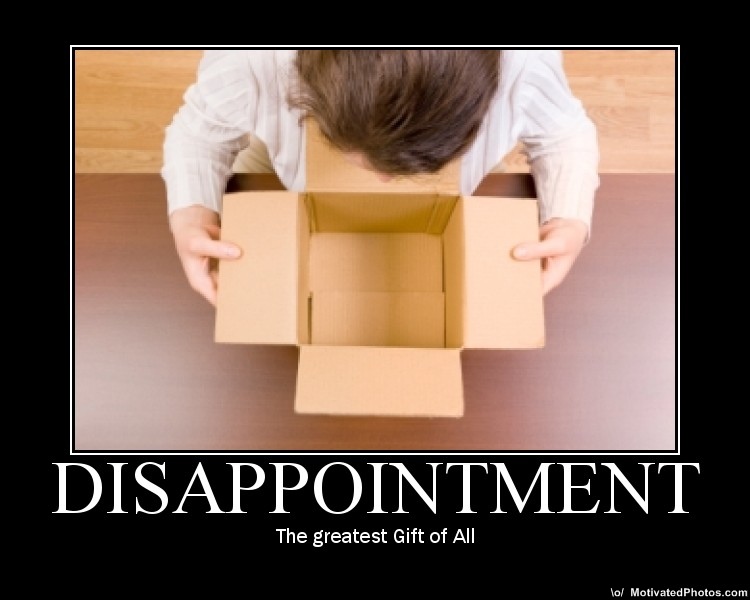 On Thursday, Sports Illustrated online posted its rankings of baseball’s general managers. As the author, Tom Marchman, points out the rankings are hardly scientific and are highly subjective. Moreover, and this is the statistic that really surprised me, most of the general managers in the league are short timers, making it harder to truly judge their value. Indeed, Shapiro is, by this point, one of the old guard.
On Thursday, Sports Illustrated online posted its rankings of baseball’s general managers. As the author, Tom Marchman, points out the rankings are hardly scientific and are highly subjective. Moreover, and this is the statistic that really surprised me, most of the general managers in the league are short timers, making it harder to truly judge their value. Indeed, Shapiro is, by this point, one of the old guard.
Nonetheless Marchman ranked Shapiro 22nd out of 30. I think that’s too high. Marchman points out that for all the platitudes the Indians’ organization gets for supposedly being so well run, Shapiro doesn’t have a whole lot to show for it. No kidding.
But Marchman didn’t go nearly deep enough. The problem isn’t so much the fact that the Indians always seem less than the sum of their parts, as Marchman notes, it’s that Shapiro has a complete inability to take a good team to the next level. Twice under his watch the Indians had playoff-caliber teams and the following off-season he did virtually nothing to get it to the next step. As a result, the team regressed as other teams maneuvered into position instead.
Since the last time the Indians were on the precipice, instead of building they destroyed. Over the last two seasons they’ve dumped two Cy Young winners and a homegrown All Star catcher. All this does is highlight how shaky the Indians’ finances really are and how much their business model depends on threading the eye of a really tiny needle in order to be successful.
Without the money to keep CC Sabathia, Cliff Lee and Victor Martinez for one final run the Indians were left with the only other alternative—a reset. In some ways this seems to be what Shapiro favors anyway, the high tech analytics that go into finding the real roughs in the baseball diamond.
But this leads to Shapiro’s other great failing, the draft. The only thing that has kept attention from gravitating to Shapiro and his front office’s abysmal drafting record during his tenure is the even worse drafting by the Cleveland Browns. But that’s like trying to decide which disease is worse, leukemia or lung cancer. Both will kill you, of course, just as consistently poor drafting is a recipe for organizational failure.
In truth, Shapiro’s only real virtue as a general manager has been his ability to understand baseball economics. But his worse sin as a general manager has been his inability to turn that foresight into any sort of competitive advantage.
**
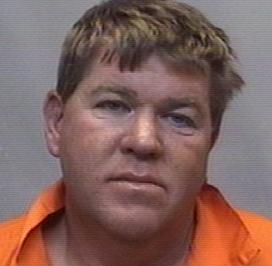 Speaking of lunkheads, it was both amusing and sad to pour through the contents of golfer John Daly’s disciplinary record with the PGA Tour.
Speaking of lunkheads, it was both amusing and sad to pour through the contents of golfer John Daly’s disciplinary record with the PGA Tour.
It probably doesn’t bear much of a mention on these pages except that with a record like Daly’s there’s bound to be a local connection. And so there is.
Interspersed among Daly’s multiple suspensions, fines, and rehabs was the details of his parking lot encounter 15 years ago at Firestone Country Club with the father of a club pro.
The year was 1994 and because of damage to the Firestone South greens, the World Series of Golf was being played on the club’s North Course. Daly, ever the impatient player particularly when he’s playing poorly, kept hitting into the group in front of him all day. On the short, driveable par 4 15th-hole, Daly did not let the group in front of him clear the green before pulling out his driver. The ball landed dangerously close to club pro Jeff Roth. It wasn’t the first time.
According to the report in the Florida Times-Union, Daly began lobbying profanities at Roth, Roth’s caddie and Roth’s mother, who was in the gallery following her son. After the round, Roth confronted Daly in the locker room and the argument continued. Finally, as the players spilled into the parking lot, Daly lobbed a few more profanities at Roth’s mother. This led to Roth’s father jumping Daly and the two scuffled briefly.
The incident cost Daly $20,000 and a suspension for the rest of the season.
What’s most interesting about the Daly file is the consistency of his misconduct. Not much has changed in his years on the PGA Tour except that the Tour has shown a remarkable amount of restraint in simply not permanently banishing him. His demons are, of course, alcohol and despite all the attempts at rehab, nothing’s taken hold. Remarkably, Daly, despite everything, hasn’t hit rock bottom, at least in his own mind.
Daly gets too much of a pass because he’s mostly viewed as a good ol’ country boy. He may be country, but he’s not good ol’. The trail of self-inflicted damage is too vast to ignore. He may complain these days about how not enough people are giving him a second chance, but at this point what he’s really asking for is his 6,346th second chance.
And lest you think Daly has much changed, just consider how he handled the fact that a reporter had the temerity to detail Daly’s record. Instead of owning it and being humbled by it, he took to Twitter and twice published the reporter’s cell phone number, urging his dwindling group of followers to flood the reporter’s cell phone with complaints. No one outside of the Golf Writers Association of America, took the time to even complain about this. For comparison’s sake consider what the reaction would have been if Tiger Woods, whose sins are far small from a golf perspective, hadn’t apologized but instead lashed out at the National Enquirer and gave the public directions to the publisher’s house and told his fans to set up a blockade.
I’d say that Daly’s latest misconduct would probably get him suspended by the Tour again but he has no playing status anyway and from the looks of things probably won’t ever have playing status again. We’re all better off for it.
**
One long column and nary a mention of the Cavs. Thus comes this week’s question to ponder: If you were Zydrunas Ilgauskas, would you re-sign with the Cavs?
- NBA Announces 2013-2014 Schedule
- Browns Ink Sharknado
- Sharknado A No-Show For Rookie Camp
- Trent Richardson Out Until Training Camp
- Browns Sign Brandon Jackson
- Carrasco Suspended Eight Games
- Browns Add to Wide Receiver Depth with David Nelson
- Browns Need to Learn from Past Draft Mistakes
- Browns Release Chris Gocong and Usama Young
- Browns Missing on Grimes Disappointing, But Not The End
The TCF Forums
- Movies coming out
rebelwithoutaclue (Tuesday, January 21 2014 12:56 PM) - 2015 Recruiting
jclvd_23 (Tuesday, January 21 2014 12:38 PM) - The 2014 Offseason Thread
Larvell Blanks (Tuesday, January 21 2014 12:25 PM) - Official- Browns Coach Search/Rumors
Larvell Blanks (Tuesday, January 21 2014 11:53 AM) - Chris Grant's first 3 drafts
Kingpin74 (Tuesday, January 21 2014 10:13 AM) - Mike Brown
YahooFanChicago (Monday, January 20 2014 11:15 PM) - 2014 Hoops Hockey Hijinx
jpd1224 (Monday, January 20 2014 4:44 PM) - 2014 Recruiting
jclvd_23 (Monday, January 20 2014 2:26 PM) - Wish List - #4 Pick
Hikohadon (Monday, January 20 2014 1:26 PM) - #1 overall pick Anthony Bennett
TouchEmAllTime (Sunday, January 19 2014 1:28 PM)



